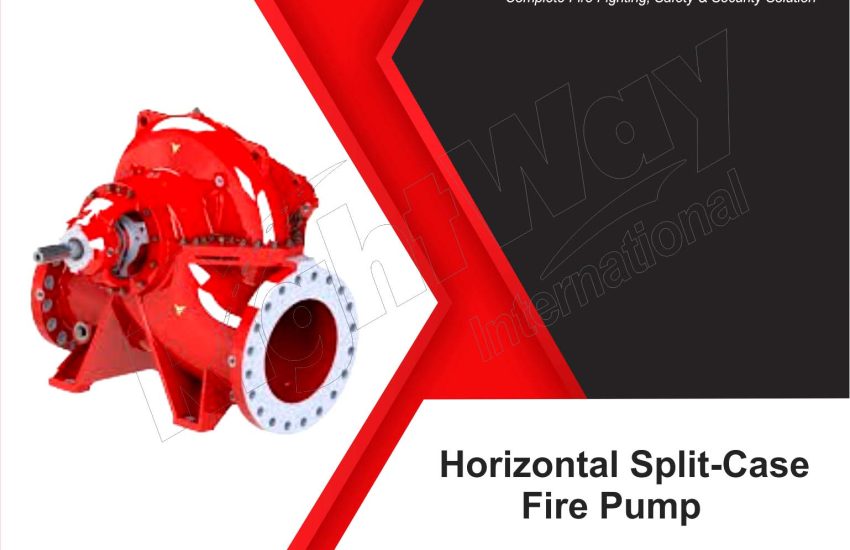What is a Horizontal Split Case Fire Pump? A horizontal split case fire pump serves as a critical component in fire protection systems, delivering water efficiently during emergencies. This article explores the definition, features, benefits, and applications of horizontal split case fire pumps, providing essential information to understand their importance in fire safety.
Definition of a Horizontal Split Case Fire Pump
A horizontal split case fire pump is a type of centrifugal pump designed with a two-piece casing. This design allows easy access to internal components. The pump draws water into the casing and discharges it through a horizontal outlet. This setup enhances maintenance efficiency, making it a preferred choice for large-scale fire protection systems.
Key Features of Horizontal Split Case Fire Pumps
- Two-Piece Design: The horizontal split casing enables easy disassembly, allowing quick access to the impeller and other internal parts for maintenance and repair.
- High Flow Rate: These pumps deliver large volumes of water at high pressures, ensuring effective fire suppression during emergencies.
- Durable Construction: Manufacturers build horizontal split case fire pumps from high-quality materials that withstand harsh operating conditions, ensuring reliable performance.
- Energy Efficiency: These pumps optimize hydraulic performance, reducing energy consumption and offering cost-effective solutions over time.
- Versatility: You can use horizontal split case pumps in various applications, including fire hydrant systems, sprinkler systems, and industrial fire protection.
Benefits of Horizontal Split Case Fire Pumps
- Enhanced Fire Safety: These pumps quickly deliver high-pressure water, significantly improving fire safety in residential, commercial, and industrial settings.
- Easy Maintenance: Technicians can perform maintenance without removing the entire pump from its installation, saving time and labor costs.
- Cost-Effective Operation: With low energy consumption and minimal maintenance needs, these pumps provide long-term savings.
- Regulatory Compliance: Installing a horizontal split case fire pump helps meet local fire safety regulations, ensuring your property adheres to necessary standards.
Applications of Horizontal Split Case Fire Pumps
- Industrial Facilities: Ideal for factories and warehouses that require large volumes of water to manage fire risks effectively.
- Commercial Buildings: These pumps provide essential fire protection in office complexes, shopping centers, and hotels.
- Municipal Fire Protection: Many municipalities use horizontal split case fire pumps in fire hydrant and standpipe systems to ensure adequate water supply during emergencies.
- Power Generation: Commonly found in power plants where reliable fire protection is critical for safety.
Maintenance Tips for Horizontal Split Case Fire Pumps
To ensure optimal performance and longevity of your split case fire pump, follow these maintenance tips:
- Regular Inspections: Conduct routine checks to identify wear and tear, ensuring efficient operation.
- Monitor Seal and Gasket Condition: Inspect seals and gaskets for leaks and replace them as needed.
- Check Lubrication: Ensure that all moving parts receive proper lubrication to reduce friction and wear.
- Professional Servicing: Schedule annual maintenance with qualified technicians to address any technical issues promptly.
Conclusion
What is a Horizontal Split Case Fire Pump? The horizontal split case fire pump plays an essential role in effective fire protection systems. With its high flow rate, durable construction, and easy maintenance, it provides peace of mind for property owners and managers. By understanding its features, benefits, and applications, you can ensure that your fire safety measures remain reliable and effective.


